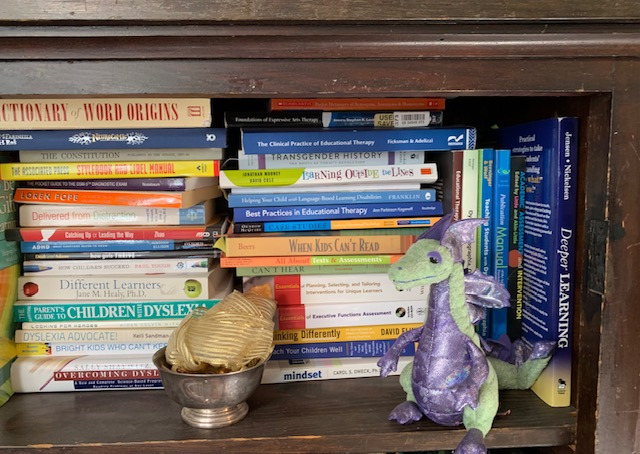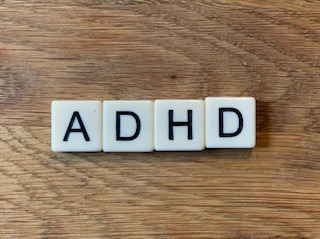ADHD
Not sure where to find information?
These are some resources I have used while working with and advocating for my youngest child, and while working with my clients. Please share resources you've found that I should check out.
Please check back for updates!
Contact me if you're looking for support for your student with dyslexia.
According to the Weil Institute for Neurosciences at the Unioversity of California, San Francisco, ADHD is a neurodevelopmental disorder that begins in childhood and often continues into adulthood. "Approximately 5-7% of children in the United States have ADHD, and similar rates have been found in other countries throughout the world. ADHD is characterized by developmentally inappropriate levels of inattention, hyperactivity, and impulsivity that interfere with school or work, friendships, and family relationships."
Symptoms of ADHD are typically associated with three types of presentation: inattentive, hyperactivity/ impulsivity, and a combination presentation.
ADHD often presents with other learning challenges like dyslexia or dysgraphia.
ADHD at a Glance
A Few Books I Recommend
Smart but Scattered; The Revolutionary Executive Skills Approach to Helping Kids Reach Their Potential By Peg Dawson & Richard Guare (2009, The Guilford Press, New York, NY)- I love this entire series!
Executive Skills in Children and Adolescents: A Practical Guide to Assessment and Intervention by Peg Dawson & Richard Guare (2022, The Guilford Press, New York, NY)
Executive Functions: What They Are, How They Work, and Why They Evolved by Russel Barkley (2020, The Guilford Press, New York, NY)
Taking Charge of ADHD: The Complete, Authoritative Guide for Parents by Russel Barkley (2020, The Guilford Press, New York, NY)
Delivered From Distraction: Getting the Most out of Life with Attention Deficit Disorder by Edward Hallowell, MD & John Ratey, MD
SOAR Study Skills: A simple and efficient system for earning better grades in less time by Susan Woodcock Kruger, M.Ed. (2007, Grand Lighthouse Publishing, Grand Blanc, MI)
ADHD: What Everyone Needs to Know by Stephen P. Hinshaw & Katherine Ellison (2016, Oxford Press, New York, NY)


Common Accommodations
Use flexible seating when possible, leveraging wiggle chairs, resistance bands on chair legs, standing desks, etc.
Set up preferential seating close to the teacher
Post a written schedule for daily routines and rules
Use a calendar or assignment notebook to track die dates
Extra time to complete assignments
Break long assignments into smaller segments
Pair written step-by-step instructions with oral instructions
Teach note-taking strategies
Provide an outline for note-taking
Set up private cue with instructor, a gentle tap on the shoulder, to cue student to stay on task
Provide figet toys, sensory tools, or movement breaks
Allow student to keep a set of text books at home and in the classroom
Set up weekly progress reports to be sent home (if needed)
Allow understanding to be demonstrated in multiple ways, written and oral reports, posters, video presentations, podcasts, etc.


Some Intervention Methods That Are Successful for Students With ADHD
Peer Coaching
Executive Function support
Direct instruction on metacognition (monitor, inhibit, emotional control)
Teach attentional control- What are the explicit procedures, rules and expectations for students to sit and behave in classrooms
Establish mastery goals related to learning and improving one's skills and abilities through effort (is your multiplication better today than it was 3 weeks ago?)
Direct instruction in note taking skills supporting transcription fluency, working memory, verbal ability, background knowledge, and the ability to attend (pay attention)


The Sagacious Dyslexic ©2026
Christine Strena, Educational Therapist, ET/P

